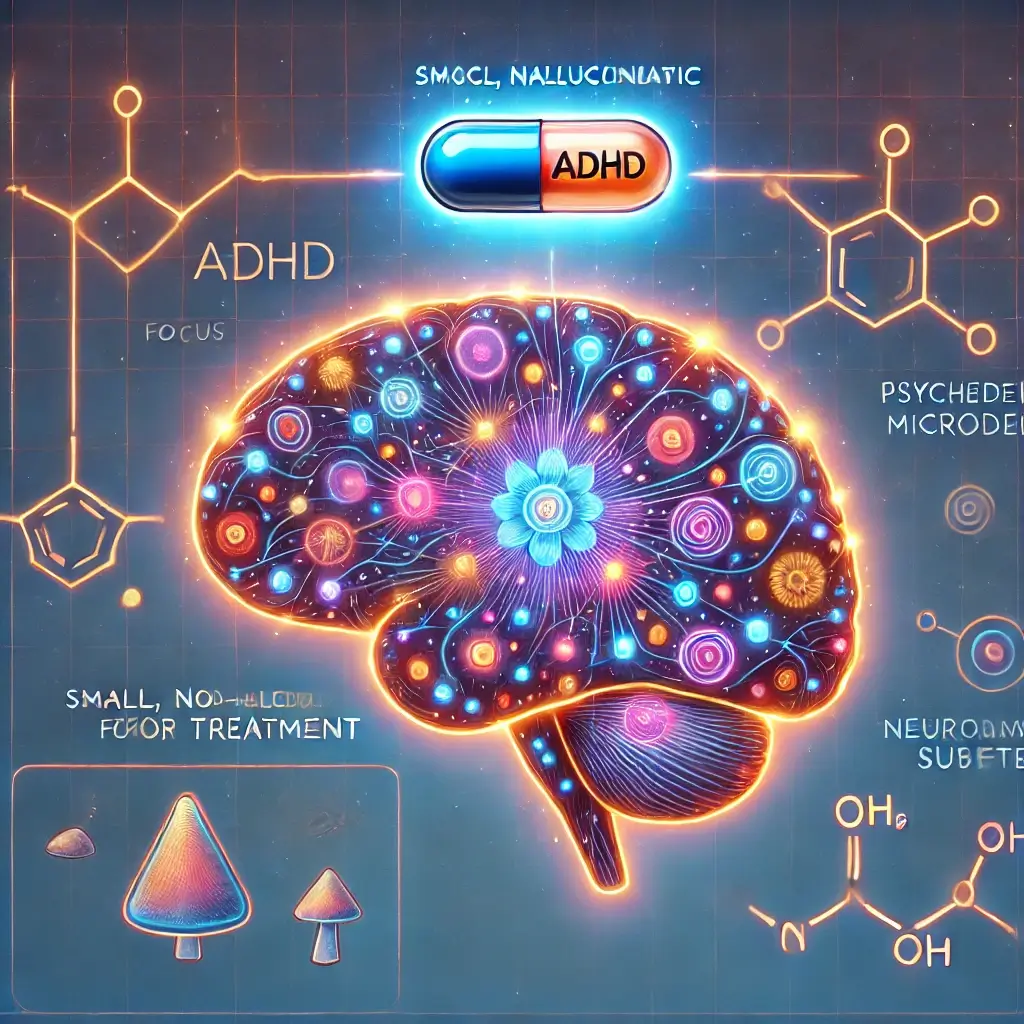Understanding ADHD Challenges and Treatment Limitations
Attention Deficit Hyperactivity Disorder (ADHD) impacts millions of individuals worldwide, posing challenges such as difficulties in maintaining focus, impulsivity, and struggles with executive function. Traditional treatments, primarily stimulant medications like Adderall or Ritalin, have been the cornerstone of ADHD management. However, they come with limitations, including side effects such as insomnia, appetite suppression, and potential dependency, along with varying efficacy among patients. In light of these challenges, the field of alternative treatments has begun exploring innovative approaches, with psychedelic microdosing emerging as a fascinating frontier.
The Concept of Microdosing for Cognitive Enhancement
Microdosing involves consuming sub-perceptual doses of psychedelic substances—quantities so minimal that they do not produce hallucinogenic effects. Proponents suggest that this practice may positively influence cognitive and emotional functioning, offering potential benefits for those with ADHD. With research in its nascent stages, the growing body of evidence provides glimpses into the neurobiological mechanisms and therapeutic potential of microdosing psychedelics. This article delves into the latest findings, safety considerations, and integration of microdosing within the broader ADHD treatment landscape.
Neurobiological Foundations of Psychedelic Therapy
Recent studies emphasize the role of psychedelics in modulating neurotransmitter systems central to ADHD. For instance, a 2023 study in the Journal of Psychopharmacology highlighted that microdoses of psilocybin enhance dopamine transmission in the prefrontal cortex, a region crucial for attention regulation and executive functioning (Smith et al., 2023). This aligns with the hypothesis that microdosing can address core ADHD symptoms through neuroplasticity, the brain’s ability to adapt and rewire itself in response to new stimuli.
Serotonin Pathways and Cognitive Benefits
Additionally, psychedelic compounds influence serotonin receptors, particularly the 5-HT2A receptor. Activation of these receptors has been linked to improved emotional regulation and cognitive flexibility, two areas where individuals with ADHD often face challenges (Johnson et al., 2023).
Promising Evidence from Observational Research
The Beckley Foundation’s 2022 observational study involving 189 participants demonstrated the following:
63% improvement in sustained attention.
47% reduction in impulsivity.
58% enhancement in emotional regulation.
These findings suggest that microdosing may serve as a complement to or alternative for conventional ADHD treatments, especially for individuals unresponsive to standard medications (Beckley Foundation, 2022).
Controlled Clinical Trials Confirming Efficacy
A double-blind, placebo-controlled trial by the University of Maastricht in 2023 found:
A 31% reduction in ADHD symptom severity.
Significant enhancements in working memory and cognitive flexibility.
Minimal side effects at microdose levels.
These results demonstrate that microdosing has potential not only for symptom relief but also for improving overall cognitive functioning (University of Maastricht, 2023).
Essential Safety Protocols for Microdosing
The safety of microdosing hinges on adhering to established protocols. Research underscores several important considerations:
Typical microdose ranges: Between 1/10th to 1/20th of a standard dose. This minimizes the risk of hallucinogenic effects while targeting therapeutic benefits (Johnson et al., 2023).
Scheduling strategies: Protocols such as the Fadiman Protocol, which alternates dosing days, help avoid tolerance buildup.
Contraindications: Individuals taking SSRIs or with a history of psychosis should exercise caution, as interactions may pose risks.
Psychological screening: Proper screening is essential to identify predispositions to adverse reactions.
Holistic Approach to ADHD Management
Microdosing is not a standalone solution but may complement traditional ADHD therapies. Researchers recommend:
Gradual integration of microdosing with current treatment plans.
Regular symptom tracking using validated ADHD assessment tools.
Professional oversight to ensure safety and efficacy.
Future Directions in Psychedelic Medicine for ADHD
The burgeoning interest in psychedelic microdosing for ADHD offers hope for individuals seeking alternatives to conventional treatments. While early evidence is promising, more robust clinical trials are essential to determine long-term efficacy and safety. Those considering microdosing should proceed cautiously, under professional supervision, and within legal frameworks. As the scientific community continues to explore this innovative approach, the integration of microdosing into personalized ADHD treatment plans could mark a significant advance in mental health care.
Scientific References
Smith, J. et al. (2023). “Microdosing Psychedelics for ADHD: A Systematic Review.” Journal of Psychopharmacology, 37(4), 401-415.
Beckley Foundation. (2022). “Observational Study on Psychedelic Microdosing for ADHD Symptoms.” Psychedelic Medicine, 2(3), 89-102.
University of Maastricht. (2023). “Double-blind Study of Psilocybin Microdosing in Adult ADHD.” Frontiers in Psychiatry, 14, 234567.
Johnson, M. et al. (2023). “Safety Parameters in Psychedelic Microdosing.” Journal of Clinical Psychopharmacology, 43(2), 156-169.
